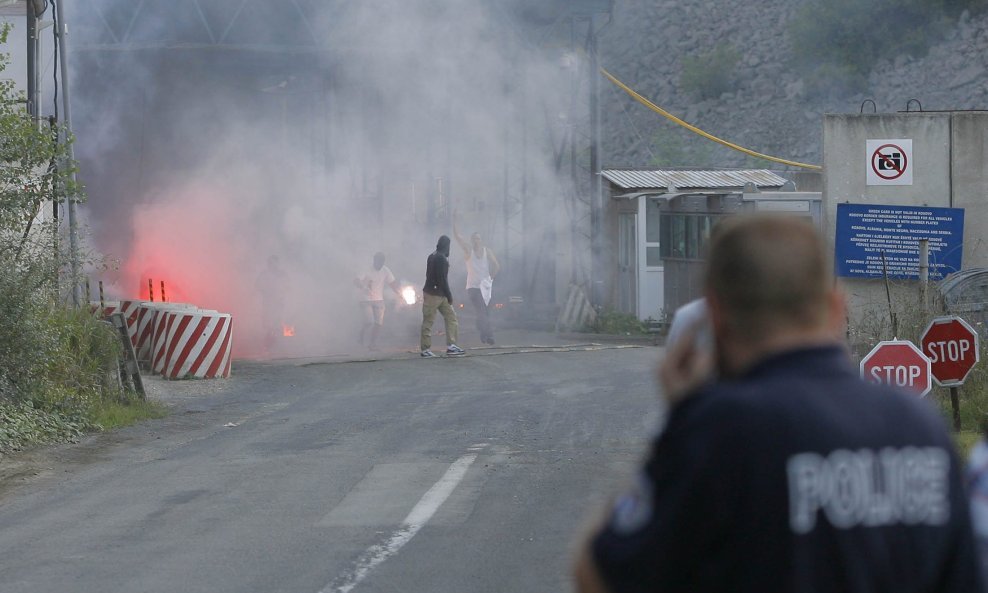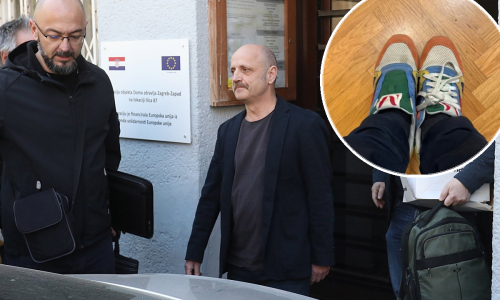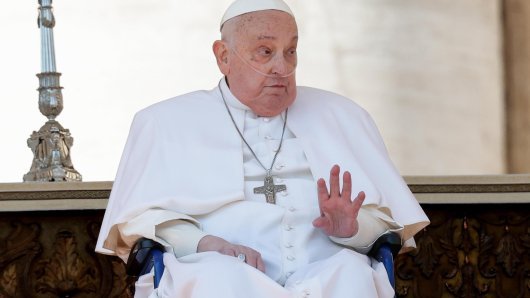NATO has declared the Jarinje and Brnjak border crossings between Kosovo and Serbia restricted military areas after KFOR peacekeepers took control of the two border posts, electronic media in Belgrade said on Thursday.
After dozens of youths attacked and set fire to the Jarinje border post on Wednesday evening, KFOR commander Erhard Buehler said that NATO had declared the Jarinje and Brnjak border crossings restricted military areas, threating the use of lethal force in case of attack on them. "I cannot exclude another attempt," he told Reuters news agency.
"Both gates are declared military restricted areas and the rules of engagement are very clear," Buehler said, warning that nobody who is not authorised to work in the gates or to cross the gates should be near them.
The head of the Serbian negotiating team, Borko Stefanovic, was quoted by the RTS state television network as saying that no progress had been made in talks on Thursday and that KFOR had confirmed having received an order from its command to enforce the decisions of the government in Pristina, i.e. to restore customs control.
Stefanovic said that the Serbian government had appealed to KFOR to resolve the problem, asking the international community to revert the situation so as to give dialogue a chance.
Noting that the chances of a positive outcome were slim, particularly after Wednesday's demolition of the Jarinje border post, Stefanovic stressed the importance of citizens remaining calm and not engaging in clashes against KFOR.
"It is unacceptable that the government in Pristina should use KFOR in an attempt to, unilaterally, violently and by sacrificing human life, change the situation in northern Kosovo and, as they say, establish 'the sovereignty of the State of Kosovo'," Stefanovic said.
The Serbian Minister for Kosovo and Metohija, Goran Bogdanovic, told Beta news agency that Serbian and KFOR officials failed to reach an agreement on Thursday evening because the representatives of the international peacekeeping force had said they would enforce the decisions of the Kosovo government at the Brnjak and Jarinje border posts.
Meanwhile, consultations were held behind closed doors in the UN Security Council on the latest developments in northern Kosovo, but Serbian Foreign Minister Vuk Jeremic was not present.
Jeremic told RTS that three permanent Security Council members had used their veto powers and prevented his attendance.
Jeremic met UN Secretary-General Ban Ki-moon, who expressed concern over the unexpected action that led to the deterioration of the situation in northern Kosovo, according to Beta.
The UN Secretary-General stressed the importance of all sides refraining from any activity that might worsen the situation and of reaching a solution that would be acceptable to all, in accordance with UN Resolution 1244. He welcomed the appeal for calm by Serbian President Boris Tadic.





































